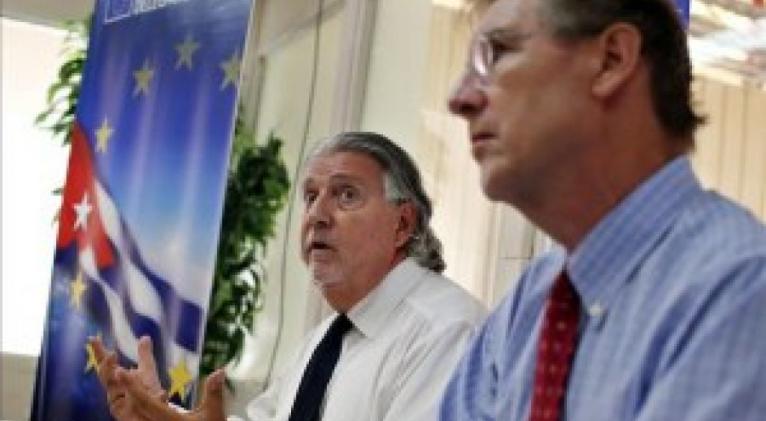EU Discusses with U.S. Extraterritorial Application of Cuban Embargo
especiales

“We’re speaking directly with our U.S. colleagues to remove those obstacles,” said the European envoy at a press conference at the 2015 Havana international trade fair.
Portocarero noted that all European countries expressed their opposition to the policy, which has been in place since 1962, on Oct. 27 in the UN General Assembly when they voted in favor of the resolution promoted each year by Cuba against the “blockade.”
“Given the new U.S. policy toward Cuba, for us it’s an important issue because important sanctions have resulted for European banks for financing operations with Cuba,” he said, alluding to the re-establishment of diplomatic ties between Washington and Havana.
One of the most widely publicized cases was the $9 billion fine imposed on French bank BNP Paribas in 2014 for undertaking transactions linked with Cuba, although the sanctions have also affected other European banks like Credit Agricole, Credit Suisse and Commerzbank.
The EU envoy also referred to the ever more regular travel by European politicians to Cuba. This May, for instance French President François Hollande visited the island and last week Italian Prime Minister Matteo Renzi also traveled to Havana.
These top-level visits, where significant business delegations accompanied the leaders, are a “collateral effect” of the new U.S. policy toward the island “not only so as not to lose the part of the Cuban market (these countries and firms) already have, but to expand it,” Portocarero said.
“The new situation with the United States has spurred great efforts on the part of the EU not to lose ground, but that is also a great advantage for Cuba, since now it has the luxury of being able to choose who it will work with, not to confine itself to just one partner,” he said.
Besides being Cuba’s No. 2 trade partner, the EU is the largest foreign investor in the island.
The EU and Cuba in April 2014 launched a process of negotiations to try and obtain an agreement on political dialogue and cooperation, as well as to normalize relations affected since 1996 by the so-called “common position,” the restrictive policy toward the island that still remains in effect.
That policy, however, has not prevented half of the EU countries from signing bilateral cooperation agreements with Havana since 2008, when contacts with Cuba were resumed, and the EU has allocated $110 million worth of aid to the island.













Add new comment